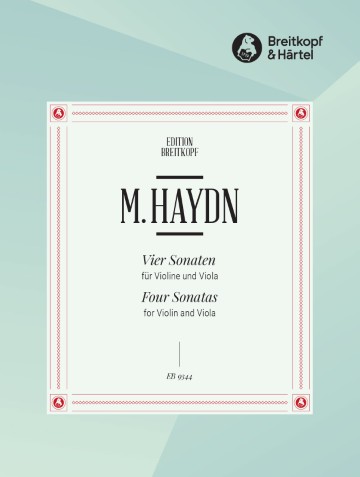Two Waltzes
Op.54, No.1 & No.4
Op.54, No.1 & No.4

Composer: Dvorak, Antonin
Editor: David Heyes
Instrumentation: 2 Violins, Viola, Double Bass
Recital Music
Originally for piano, Dvorak’s Two Waltzes from Op.54 were arranged for string quintet by the composer and are fun and accessible pieces which are suitable…
R.R.P £7.5
Our Price £6.38
Shipping Costs: No shipping




